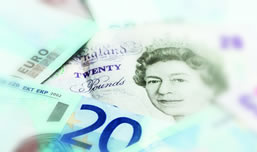Downloads, CDs and piracy: the good, the bad and the ugly
Mixed messages and conflicting signals abound when attempting to perform a health-check on the music industry.
There are good (digital), bad (recorded) and ugly (piracy) signals. In this month's Download, we discuss some ways in which the ugly and bad can be turned into good signals. The challenges faced by the industry may largely boil down to one core question, answers to which have been sought and partially provided over the course of at least the last decade: how to convert the enjoyment of listening to music and the ease of accessing music online into revenue that can continue to produce the music people want to listen to?
The good
 Starting with the good, in 2011 the growth rate of global digital music revenues grew year-on-year for the first time and made up one-third of total revenue, according to the IFPI. In the world’s largest music market, the US, digital channels have overtaken physical formats to become the primary source of revenues for record companies. Digital channels now account for an estimated 31% of record company revenues globally, up from 29% in 2010. See the IFPI Digital Music Report 2012.
Starting with the good, in 2011 the growth rate of global digital music revenues grew year-on-year for the first time and made up one-third of total revenue, according to the IFPI. In the world’s largest music market, the US, digital channels have overtaken physical formats to become the primary source of revenues for record companies. Digital channels now account for an estimated 31% of record company revenues globally, up from 29% in 2010. See the IFPI Digital Music Report 2012.
Early indications from the BPI are that this relative growth is matched in the UK, as they report that 55% of sales in the first quarter of 2012 were digital. Universal Music reported a 3.2% revenue rise in first half 2012, together with an 8.9% increase in digital sales. PRS for Music's digital royalties rose 45.3% in 2011. The BPI reported that digital album sales grew by 26.6% to £26.6 million in 2011 and premium subscription services were up by 43% to £23 million in the same period in the UK. The Hooper Phase 1 Review into copyright licensing in the UK reported good news from the state of the digital music market, saying that the UK has more digital music services operating (70+) than any other country.
The bad
While digital revenues have increased they have not yet, however, offset the decline in the CD market. Digital revenues make up a bigger proportion of a smaller pie. According to the IFPI, the overall recorded music market fell 3% from a total value of $16.7 billion in 2010 to $16.2 billion in 2011. However, the 2011 figures show a significant reduction in the rate of decline of the market. In particular, physical sales fell by 8.7% globally between 2010 and 2011, although the fall from 2009 to 2010 was worse at 13.8%. The BPI reports that in the UK industry revenues have fallen by more than 30% in the last seven years.
 There are concerns that digital growth rates may start to slow, as there is a smaller consumer base who regularly pay for music online, compared to those who "used to" purchase music physically. Between 2008 and 2011, nearly a third of growth came from existing digital buyers spending more, as opposed to new buyers. Existing digital buyers can only spend so much more. 30% of digital buyers account for 80% of spend. The long tail of digital consumers needs to increase and spend needs to be less concentrated in small numbers of regular consumers.
There are concerns that digital growth rates may start to slow, as there is a smaller consumer base who regularly pay for music online, compared to those who "used to" purchase music physically. Between 2008 and 2011, nearly a third of growth came from existing digital buyers spending more, as opposed to new buyers. Existing digital buyers can only spend so much more. 30% of digital buyers account for 80% of spend. The long tail of digital consumers needs to increase and spend needs to be less concentrated in small numbers of regular consumers.
The ugly
Why have digital revenues not yet increased the overall size of the pie? Legitimate sources of music are undercut by free illegitimate sources. For as long as unauthorised services can provide a broadly equivalent, moderately convenient and comprehensive source of music to the authorised services, potential revenues are going to be lost.
A recent global study of music piracy (carried out by Musicmetrics) found that the UK came second for number of illegal downloads from BitTorrent in the first half of 2012 at 43 million (second to the US with 96 million). It also found that pirated downloads still outnumber legal ones by a significant amount. For example, there were 8 illegal downloads of Ed Sheeran’s debut album for every purchase. And this after one of the major sources of unlawful content in the UK, The Pirate Bay, was subject to injunctions requiring ISPs to block access to it.
What might change the ugly and bad signals into good signals?
 The core question posed earlier breaks down into many sub-questions and answers are beyond the scope of this piece. Where will the balance in the market between streaming/consuming and downloading/owning rest? Is there a third way in which services give the appearance and convenience of being free at the point of consumption and continue to provide meaningful revenue to the creators (as now typically happens through advertising revenue)? For example, will more music services become bundled with (and even subsidised by) hardware and/or network access in the way, for example, mobile phones and 3G access are bundled together? By extension, can the power of 4G networks and public WiFi support new platforms which provide the convenience of an mp3 player and the extensive libraries of desktop streaming services while on the move? Will a truly pan-EU digital market arise (e.g. through the cloud, see our article here), with improved licensing and revenue collecting systems, harnessing the collective power of 500 million potential consumers of music?
The core question posed earlier breaks down into many sub-questions and answers are beyond the scope of this piece. Where will the balance in the market between streaming/consuming and downloading/owning rest? Is there a third way in which services give the appearance and convenience of being free at the point of consumption and continue to provide meaningful revenue to the creators (as now typically happens through advertising revenue)? For example, will more music services become bundled with (and even subsidised by) hardware and/or network access in the way, for example, mobile phones and 3G access are bundled together? By extension, can the power of 4G networks and public WiFi support new platforms which provide the convenience of an mp3 player and the extensive libraries of desktop streaming services while on the move? Will a truly pan-EU digital market arise (e.g. through the cloud, see our article here), with improved licensing and revenue collecting systems, harnessing the collective power of 500 million potential consumers of music?
Will ISPs and other intermediaries whose services are used directly and indirectly to enable piracy be forced to or voluntarily provide more assistance to the creative industries? Will measures like the UK's Digital Economy Act have a meaningful effect on piracy levels and will they fare better politically than France's HADOPI laws? Will the industry win the battle for hearts and minds of consumers that, without proper revenue streams, the music they wish to consume for free will not be there in future?
The right answers to these questions will hopefully continue to convert the ugly and bad into the good.
If you have any questions on this article please contact us.


Adam Rendle

Jessie Prynne
Adam Rendle and Jessie Prynne consider the outlook for the music industry.
"A recent global study of music piracy (carried out by Musicmetrics) found that the UK came second for number of illegal downloads from BitTorrent in the first half of 2012 at 43 million (second to the US with 96 million)."

